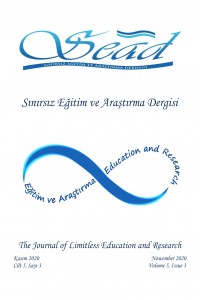Abstract
Digital transformation institutions expect fundamental disruptions in nature of both demand and supply of the economic delivery model for higher education. The key drivers of change for education are; the rapid introduction of new digital technologies, the development of new educational delivery systems, and economic models and the changing educational expectations from a new generation of learners, digital natives. Student expectations stemming from their interactions with Virtual Reality (VR)/ Augmented Reality (AR), Artificial Intelligence (AI), gamification, personalization will drive their educational choices. Thus, faculty and institutions will need to “up their game” in the development of services and experiences that will meet student expectations. As a result, this will require new delivery methods and restructuring of educational systems and structures.
References
- Bennett, Nate (2014) What VUCA Really Means? Harvard Business Review, (January/February) https://hbr.org/2014/01/what-vuca-really-means-for-you
- Boston Consulting Group & Arizona State University. (2018). Making Digital Learning Work. https://edplus.asu.edu/sites/default/files/BCG-Making-Digital-Learning-Work-Apr-2018%20.pdf
- Bozkurt, A. & Hilbelink, A. (2019). Paradigm Shifts in Global Higher Education and e-learning: An ecological perspective. https://elearnmag.acm.org/archive.cfm?aid=3329487
- Galloway, Scott (2020) The Coming Disruption, New York Magazine (May) https://nymag.com/intelligencer/2020/05/scott-galloway-future-of-college.html
- He, W., Holton, A., Farkas, G., & Warschauer, M. (2016). The effects of flipped instruction on out-of-class study time, exam performance, and student perceptions. Learning and Instruction, 45, 61–71.CrossRefGoogle Scholar
- Herrington, J., Herrington, A., Mantei, J., Olney, I. W., & Ferry, B. (2009). New Technologies, new pedagogies: Mobile learning in higher education. http://ro.uow.edu.au/edupapers/91https://assets.publishing.service.gov.uk/government/uploads/system/uploads/attachment_data/file/807625/DFR_Online_learning_and_AIEd_market_review.pdf
- International Association of Universities (2020). COVID-19: Higher Education challenges and responses, https://www.iau-aiu.net/COVID-19-Higher-Education-challenges-and-responses
- Newman, Daniel (2017) The Top Six Transformational Trends in education, Forbes, (July) https://www.forbes.com/sites/danielnewman/2017/07/18/top-6-digital-transformation-trends-in-education/#6912114e2a9a
- Schmidt, Joel T. and Min Tang (2020) Digitalization in Education: Challenges, Trends and Transformative Potential, in Führen und Managen in der digitalen Transformation, (May), DOI: 10.1007/978-3-658-28670-5_16, Springer. Schumpeter, Joseph (1942), Capitalism, Socialism and Democracy, https://www.econlib.org/library/Enc/CreativeDestruction.html
- The World Economic Forum. “Unlocking $100 Trillion from Business and Society Digital Transformation” (http://reports.weforum.org/digital-transformation/wp-content/blogs.dir/94/mp/files/pages/files/dti-executive-summary-20180510.pdf), 2018.
- UNESCO. (n.d.) COVID-19 Educational Disruption and Response. https://en.unesco.org/covid19/educationresponse United Nationals Global Education Monitoring Report 2019, http://gem-report-2019.unesco.org/chapter/finance/ United Nations Education, Cultural and Scientific research, https://unesdoc.unesco.org/ark:/48223/pf0000265866.page=255
- Zaidi, A., Beadle, S., Hannah, A., & ICF Consulting Services Ltd. (2018). Review of the online learning and artificial intelligence education market: A report for the Department of Education.
- Zhang, Jonathan and Hsiao-Wuen Hon (2020) California Management Review (March). https://cmr.berkeley.edu/2020/03/responsible-digital-transformation/.
Abstract
Digital transformation institutions expect fundamental disruptions in nature of both demand and supply of the economic delivery model for higher education. The key drivers of change for education are; the rapid introduction of new digital technologies, the development of new educational delivery systems, and economic models and the changing educational expectations from a new generation of learners, digital natives. Student expectations stemming from their interactions with Virtual Reality (VR)/ Augmented Reality (AR), Artificial Intelligence (AI), gamification, personalization will drive their educational choices. Thus, faculty and institutions will need to “up their game” in the development of services and experiences that will meet student expectations. As a result, this will require new delivery methods and restructuring of educational systems and structures.
Keywords
digital transformation education Innovation Education Education Education Education Digital Transformation Digital Transformation
References
- Bennett, Nate (2014) What VUCA Really Means? Harvard Business Review, (January/February) https://hbr.org/2014/01/what-vuca-really-means-for-you
- Boston Consulting Group & Arizona State University. (2018). Making Digital Learning Work. https://edplus.asu.edu/sites/default/files/BCG-Making-Digital-Learning-Work-Apr-2018%20.pdf
- Bozkurt, A. & Hilbelink, A. (2019). Paradigm Shifts in Global Higher Education and e-learning: An ecological perspective. https://elearnmag.acm.org/archive.cfm?aid=3329487
- Galloway, Scott (2020) The Coming Disruption, New York Magazine (May) https://nymag.com/intelligencer/2020/05/scott-galloway-future-of-college.html
- He, W., Holton, A., Farkas, G., & Warschauer, M. (2016). The effects of flipped instruction on out-of-class study time, exam performance, and student perceptions. Learning and Instruction, 45, 61–71.CrossRefGoogle Scholar
- Herrington, J., Herrington, A., Mantei, J., Olney, I. W., & Ferry, B. (2009). New Technologies, new pedagogies: Mobile learning in higher education. http://ro.uow.edu.au/edupapers/91https://assets.publishing.service.gov.uk/government/uploads/system/uploads/attachment_data/file/807625/DFR_Online_learning_and_AIEd_market_review.pdf
- International Association of Universities (2020). COVID-19: Higher Education challenges and responses, https://www.iau-aiu.net/COVID-19-Higher-Education-challenges-and-responses
- Newman, Daniel (2017) The Top Six Transformational Trends in education, Forbes, (July) https://www.forbes.com/sites/danielnewman/2017/07/18/top-6-digital-transformation-trends-in-education/#6912114e2a9a
- Schmidt, Joel T. and Min Tang (2020) Digitalization in Education: Challenges, Trends and Transformative Potential, in Führen und Managen in der digitalen Transformation, (May), DOI: 10.1007/978-3-658-28670-5_16, Springer. Schumpeter, Joseph (1942), Capitalism, Socialism and Democracy, https://www.econlib.org/library/Enc/CreativeDestruction.html
- The World Economic Forum. “Unlocking $100 Trillion from Business and Society Digital Transformation” (http://reports.weforum.org/digital-transformation/wp-content/blogs.dir/94/mp/files/pages/files/dti-executive-summary-20180510.pdf), 2018.
- UNESCO. (n.d.) COVID-19 Educational Disruption and Response. https://en.unesco.org/covid19/educationresponse United Nationals Global Education Monitoring Report 2019, http://gem-report-2019.unesco.org/chapter/finance/ United Nations Education, Cultural and Scientific research, https://unesdoc.unesco.org/ark:/48223/pf0000265866.page=255
- Zaidi, A., Beadle, S., Hannah, A., & ICF Consulting Services Ltd. (2018). Review of the online learning and artificial intelligence education market: A report for the Department of Education.
- Zhang, Jonathan and Hsiao-Wuen Hon (2020) California Management Review (March). https://cmr.berkeley.edu/2020/03/responsible-digital-transformation/.
Details
| Primary Language | English |
|---|---|
| Subjects | Studies on Education |
| Journal Section | Makaleler |
| Authors | |
| Publication Date | November 15, 2020 |
| Submission Date | September 19, 2020 |
| Acceptance Date | October 7, 2020 |
| Published in Issue | Year 2020 Volume: 5 Issue: 3 |


